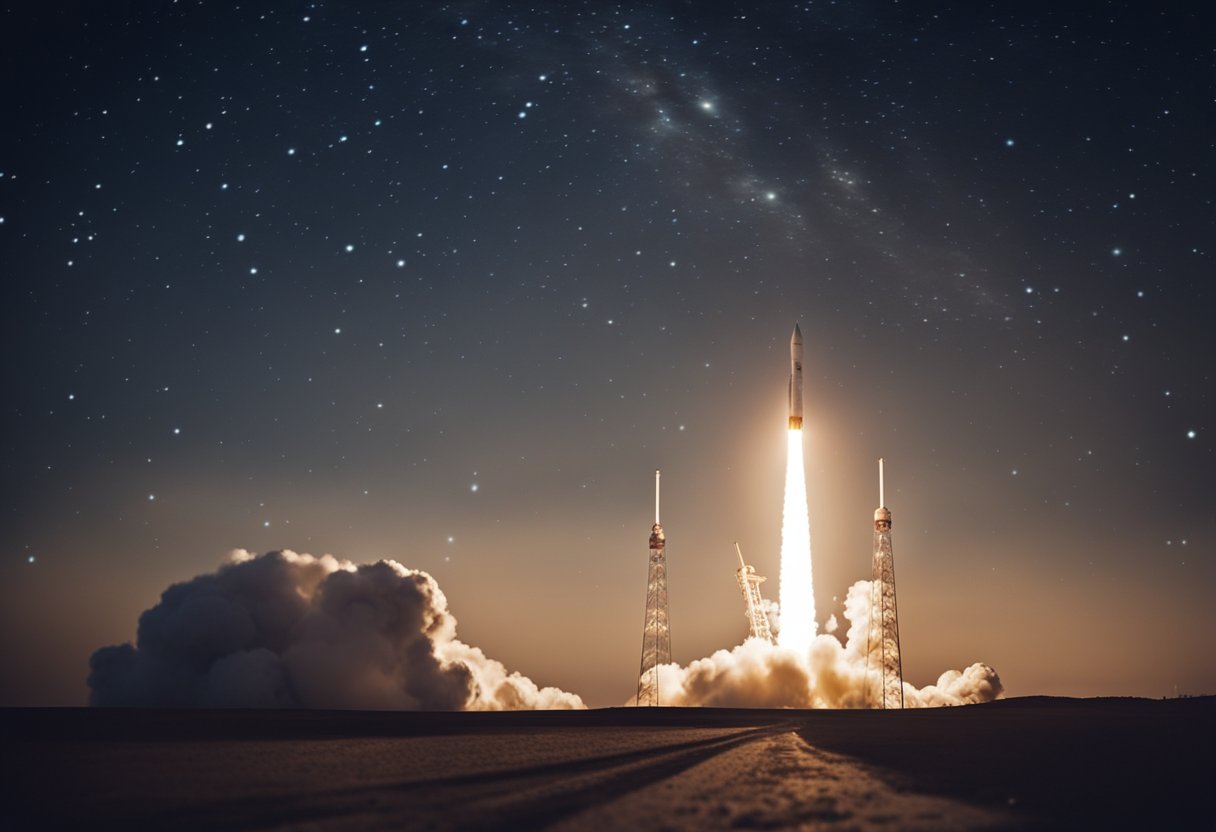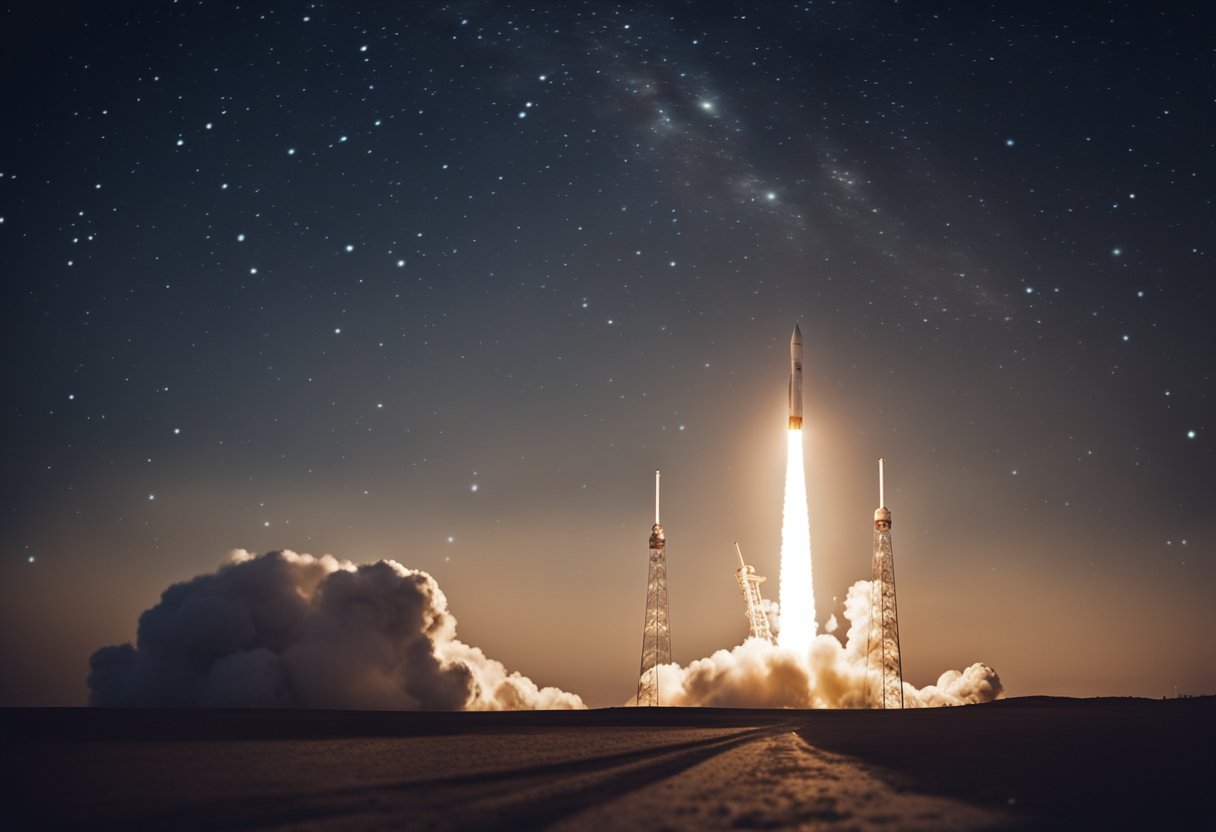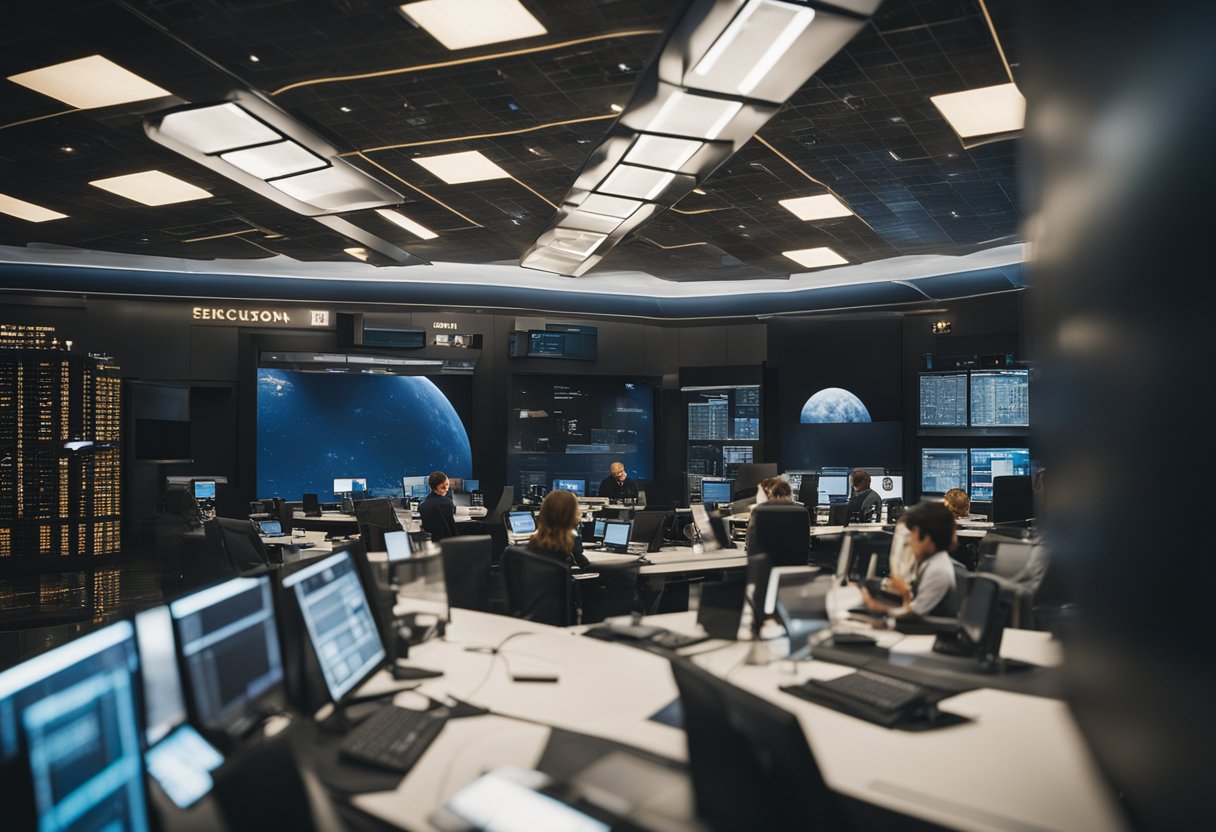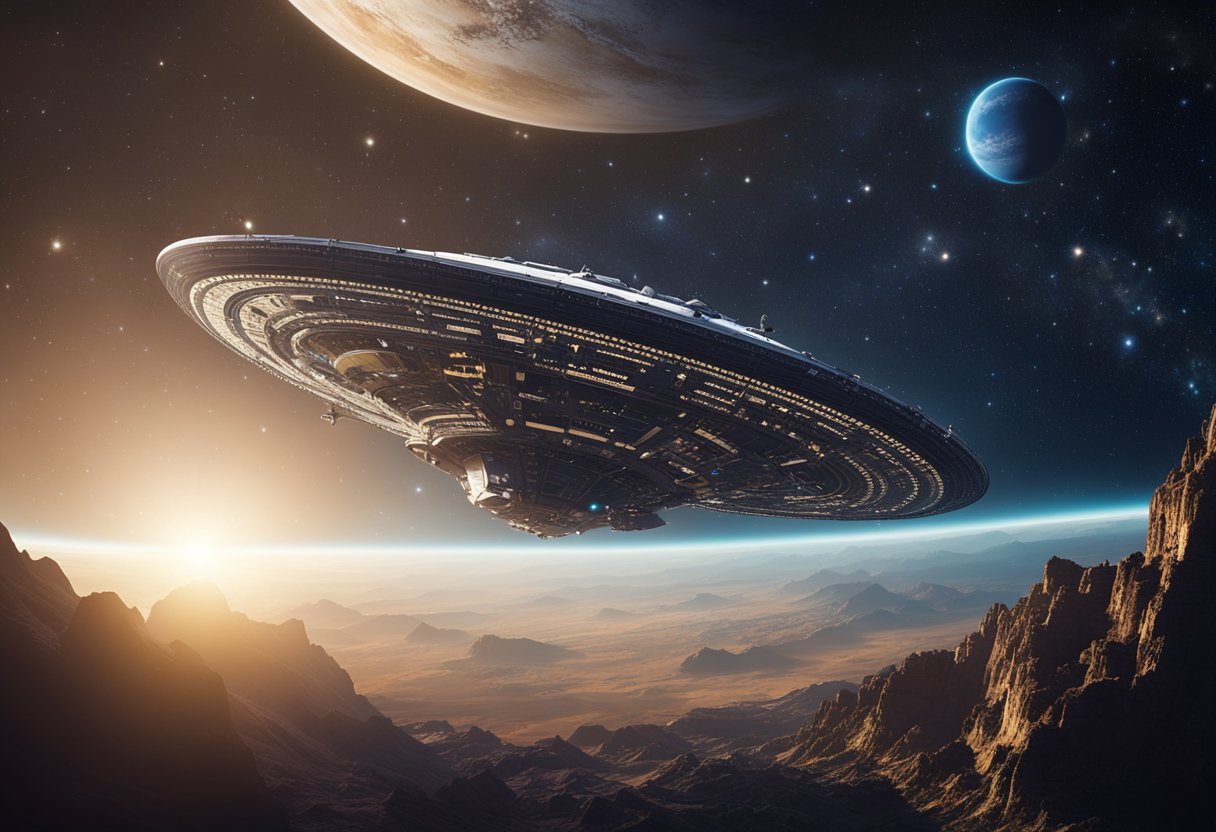
Philosophical Questions Raised by Space Travel – As we embark on the journey of space exploration, a plethora of philosophical questions emerge. The notion of transcending our planetary boundaries not only propels technological advancements but also challenges our very understanding of existence, ethics, and our place in the universe. From the historical feats of launching humans into space to the prospects of space tourism offered by websites like SpaceVoyageVentures.com, each step towards the cosmos compels us to confront profound queries about our responsibilities and our future as a space-faring species.

The ethical considerations of venturing into the great unknown are intricate and multifaceted. We must ponder the justification of allocating vast resources to explore space when there are pressing issues that demand attention on Earth. Furthermore, the potential discovery of extraterrestrial life raises questions about our moral obligations beyond our own world. Our technological capabilities to traverse the cosmos bring with them responsibilities to avoid harming the interstellar environment and to use our discoveries for the betterment of humanity.
At the heart of space travel lies a series of existential inquiries. This venture beyond Earth’s atmosphere offers new perspectives on human existence and the nature of knowledge itself. By considering the possibilities of space colonisation and the long-term survival of our species, we forge a new narrative about human endurance and our evolutionary destiny. While the rewards of such explorations could be monumental, we also face significant risks that necessitate careful philosophical contemplation.
We are on a quest to understand the philosophical implications of journeying beyond our planet. The history of space exploration is rich with events and ideas that challenge our fundamental understanding of existence and our place in the universe.
The Space Age represents a pivotal era that began on 4 October 1957 when humanity first sent an artificial satellite, Sputnik 1, into orbit. This marked the start of our physical exploration of space, and it simultaneously launched a myriad of philosophical debates about the human condition and our role in the universe. Specialists in the field have pondered whether space is often perceived as valueless, a cold and dangerous frontier, or if it holds moral significance for humanity’s future.
In the chronicles of our journey to the stars, several milestones have been seminal in expanding our knowledge and challenging our scientific paradigms:
Over the past decades, space exploration has cemented itself as a crucible for advancements in science and technology, laying a foundation for future endeavours such as those chronicled by SpaceVoyageVentures.com, revealing potential space tourism experiences.
By advancing our knowledge through missions like the Hubble Space Telescope and the Mars Rovers, we’ve gained an unprecedented glimpse into the fabric of our cosmos, continuously redefining our understanding of the universe and our potential to traverse it.
As we push the boundaries of human exploration beyond our planet, our actions in space are subject to significant ethical scrutiny. With the advent of entities like SpaceVoyageVentures.com, discussions around the ethics of space travel have intensified. We shall explore key facets of this debate under three primary subsections.
The field of bioethics becomes relevant as we consider the physical and psychological well-being of astronauts and tourists in space. Prolonged exposure to microgravity poses risks such as muscle atrophy and bone density loss, raising questions about our responsibility towards ensuring the health of those we send into the cosmos. Moreover, with commercial entities like SpaceVoyageVentures.com looking to increase civilian trips to space, the ethics around informed consent and the acceptable level of risk for non-professionals come to the forefront.
Our ventures into the cosmos entail altering extraterrestrial environments, especially when considering ambitions like terraforming or setting up habitats on celestial bodies such as Mars. Projects focused on the colonisation of Mars necessitate an examination of environmental ethics in space; we must contemplate the preservation of the pristine states of other planets and moons. Additionally, space debris created by human activity endangers both spacecraft and the terrestrial environment upon re-entry, obliging us to consider the sustainability of our space pursuits.
The notion of colonisation in space invites various ethical considerations, reminiscent of historical Earth-bound colonisation episodes that often led to exploitation and inequity. The ethical implications of claiming territories and utilising resources in space raise questions about ownership, governance, and the potential marginalisation of nations unable to access space. Further, space ethics must encompass guiding principles for interactions with any potential extraterrestrial life, ensuring that our deep-space endeavours are conducted with utmost respect for all forms of life and their habitats.
Exploring the possibility of extraterrestrial life challenges our epistemological foundations and ethical frameworks. Our search is not merely a scientific endeavour; it’s a profound philosophical inquiry that could redefine our place in the universe and shift societal values and beliefs.
Evidence of extraterrestrial life, whether microbial or more advanced, would prompt us to reconsider the concept of life itself. It could reinforce or challenge the Anthropic Principle, which suggests that the universe is finely tuned for human life. We must assess our methodologies in the search for life, ensuring they are not Earth-centric but universal, to avoid overlooking potential forms of life that do not adhere to our biological assumptions. The recent surge in space ventures, as chronicled by SpaceVoyageVentures.com, underscores our commitment to this quest.
The discovery of extraterrestrial life would have profound implications for society at large. It might cause shifts in our collective values—especially regarding the sanctity and uniqueness of human life—and could lead to new ethical considerations regarding the rights of non-human organisms. Furthermore, such a discovery could influence our belief systems, challenging religious doctrines centred around human exceptionalism and prompting dialogue about the role of God or gods in a possibly infinite and diverse universe. The eventual confirmation of life beyond Earth would likely provoke a re-evaluation of our own significance and responsibility within the vast cosmic expanse.

As we embark on space travel and exploration, the intersection of science and philosophy sharpens our comprehension of the cosmos, raising profound questions and challenging our epistemological frameworks.
Cosmology has long served as a rich source of inquiry within philosophy, prompting us to question the very nature of the universe and our place within it. The study of the cosmos not only provides an empirical basis for understanding but also raises questions that lie at the very core of philosophical thought. For instance, the 13 most profound questions about the cosmos stimulate us to contemplate our existence, the beginning of the universe, and the intricate laws governing the celestial bodies. Our pursuit of cosmological knowledge assists in shaping a worldview encompassing both scientific facts and philosophical interpretations.
Space exploration significantly contributes to our knowledge base, prompting us to refine the epistemological foundations upon which we build our understanding. As we investigate the vastness of space, such as through the observations of the Hubble Space Telescope, we ground our understanding in evidence and empiricism. Our adventures not only push the boundaries of what is known but also challenge our notions of what can be known. The epistemic virtues of curiosity, rigour, and openness to new evidence guide our interpretation of data received from ventures that SpaceVoyageVentures.com aims to make more common. Through this lens, our evolving understanding of space deepens the knowledge that shapes the very fabric of our philosophy.
In the age where space colonisation transitions from science fiction to tangible reality, we face profound questions about our species’ future and evolution. These discussions are crucial as we prepare to extend human presence beyond Earth.
As humans contemplate establishing permanent residences in the cosmos, we must examine the intrinsic value of human life in the context of space colonisation. Venturing into the unknown challenges our survival instincts and compels us to reassess our human rights in environments that are indifferent to our existence. Philosophers like those writing in Philosophy Now debate the moral imperatives of such endeavours. The essence of the human condition is about to undergo a profound shift, with new moral, ethical, and existential dimensions emerging from our aspirations to settle on distant worlds.
The establishment of space colonies will inevitably reshape our societal structures and cultural norms. We must consider how societal constructs will evolve when detached from Earth, possibly giving rise to new forms of governance and social contracts. Cultural implications are vast, affecting everything from family life, depicted by long-term space missions discussed in Scientific American, to a reshaped worldview that encompasses a multi-planetary perspective. Our approach to space colonies must ensure that the societal and cultural evolution on these new frontiers is based on the principles of human rights and equity, a challenge that becomes even more crucial in the boundlessness of space.
As we explore these concepts both intellectually and practically, our perspectives on human rights, society, and our collective worldview will undoubtedly evolve, influenced by the unique challenges and experiences that come with living off-world.

Space exploration presents us with a dichotomy of potential risks and unparalleled opportunities for advancing knowledge. As we venture into the cosmos, our understanding of science and philosophy deepens, though not without facing substantial challenges.
Engaging in the act of space exploration is not without its perils. Risks are a constant companion, ranging from the immediate dangers to astronauts’ health due to prolonged exposure to microgravity and cosmic radiation, to broader ethical considerations such as the possibility of forward contamination during missions. At Trilateral Research, concerns are raised about the implications of long-duration space travel and the drastic alteration of extraterrestrial landscapes, known as terraforming.
The risk of back contamination is also pressing; when probes return, they could potentially bring extraterrestrial microorganisms to Earth, as discussed at ASU News. These risks impel us to establish stringent protocols for sterilisation and containment. It is our responsibility to safeguard our planet while responsibly probing others.
Conversely, we crave the rewards that space exploration promises. It’s the knowledge gained and the scientific progress made that propel us forward. As we explore, we address the fundamental question of “Are we alone?” and aim to understand our place in the universe. The desire to expand human horizons has fostered advancements in technology and united nations in peaceful exploration efforts. Breaking through the final frontier, also as seen on early space tourism websites like SpaceVoyageVentures.com, has begun to present new possibilities for space tourism, injecting vigour into the imagination about what might be within our reach.
The pursuit of philosophical understanding through cosmic exploration helps us to grapple with questions about our very existence. Insights into eight ethical questions that emerge from our venture into the unknown inform future exploratory protocols and challenge our perspectives on life, both terrestrial and otherwise. Through this lens, space exploration is not merely a technical endeavour, but a profound journey into the nature of reality itself.

In the fascinating realm of space exploration, states and organisations shoulder critical roles. Our focus is on elucidating the pivotal responsibilities and ethical considerations that such entities must navigate.
NASA, a leading force in space exploration, has long been known for fostering international collaboration. The International Space Station is a quintessential example of what we can achieve when countries unite in pursuit of scientific advancement. Together, we examine the ethical implications of shared resources and knowledge, including the transfer of technology that can benefit all humanity.
Despite the complexities, our interconnectedness in space missions serves as a testament to humanity’s potential when we strive in cooperation rather than competition.
The ascent of private companies like SpaceX presents new paradigms in space travel ethics. As we transition from a solely state-funded venture to a commercially-driven enterprise, businesses carry the onus of considering the ethical ramifications of their expeditions. With platforms like SpaceVoyageVentures.com detailing nascent tourism opportunities, it becomes imperative for these entities to balance profit-making with the preservation of space as a common human heritage.
Our scrutiny of their actions grows alongside their role in shaping the celestial narrative. It is essential that space ethics underpin every decision made, as the cosmos does not solely belong to us, but to future generations as well.

As we enter a new era of space exploration, our technological capabilities are stretching the boundaries of what’s possible, raising profound philosophical questions about our place in the universe.
We have witnessed the development of new technologies that enable deeper space exploration. For instance, the deployment of sophisticated rovers like Perseverance on Mars represents a quantum leap in our quest for knowledge. These rovers serve as robotic geologists, unveiling the secrets of Martian soil and paving the way for future human missions. But as we remotely explore alien worlds, we must consider the philosophical implications of these discoveries. How do they shift our understanding of life and our responsibility in the cosmos? The findings from these rovers could challenge theories put forth by pivotal figures like Einstein, potentially shaping new scientific paradigms.
The Space Age fostered a symbiotic relationship between technological advancement and wisdom in our interstellar pursuits. Websites like SpaceVoyageVentures.com keep us informed on the progress of space tourism, hinting at a future where space travel is mainstream. With such advancements, we’re compelled to cultivate technological wisdom, understanding not just how to achieve great feats, but also why we pursue them and to what end. Wisdom in this context is our guide in ensuring that our scientific endeavours, like space exploration, proceed with ethical foresight and a respect for the broader implications on humanity.

As we embark on unprecedented journeys into space, philosophical considerations become increasingly significant. Our exploration is not merely a physical endeavour; it also extends into the realms of ethics, metaphysics, and human destiny.
Time travel has captivated human imagination long before the capability to travel through space became tangible. Our understanding of time, heavily influenced by theoretical physics, posits that time travel could potentially alter not only our future in space exploration but also how we comprehend existence itself. The very notion challenges our philosophical paradigms, compelling us to question cause and effect and our place within the universe.
The concept of alternate dimensions adds another layer to our philosophical inquiry. The possibility of multiple dimensions suggests that space exploration might one day reveal universes parallel to our own. This prospect invites us to consider the multiverse hypothesis and its implications for understanding our unique, or perhaps not so unique, position in the cosmos.
Terraforming planets, such as Mars, represents a monumental leap for humanity, signifying a future where we are not confined to Earth. This process, which involves altering the planet’s environment to make it habitable for humans, raises profound ethical questions. We find ourselves deliberating the morality of transforming another world, the responsibilities we hold towards these new ecosystems, and the rights of potential life forms that may exist there.
Interstellar travel further expands the horizon of our philosophical discourse. The pursuit of voyages to stars beyond our solar system underscores our yearning for progress and discovery. As SpaceVoyageVentures.com foreshadows, our future in space may include not only scientific and exploratory missions but also tourism, fostering a novel philosophical perspective on space as a destination not just for astronauts but for society at large.
By delving into these philosophical frontiers, we gain clarity not only on the future of space exploration but also on the human condition. We are at the precipice of a new era where our species’ very evolution is intertwined with the celestial paths we pursue.

As we probe further into the depths of space, our understanding of the universe expands, paving the way for a multitude of existential questions that challenge our knowledge and philosophy.
Pursuing the fundamental purpose of our existence, we must consider the universe not just as a physical expanse, but as a construct that may offer insights into the ontology of being. The expansion of space travel ignites a renewed quest for meaning, positioning humanity against the backdrop of an immense cosmos. Through ventures anticipated by websites such as SpaceVoyageVentures.com, which documents the evolution of space tourism, we confront the philosophical implication of our place in the universe.
Infinity, as a concept, pushes the limits of our comprehension. The universe—seemingly boundless and ever-expanding—embodies this notion, compelling us to rethink our cognitive frameworks. The juxtaposition of the finite human experience with the infinite nature of the cosmos often leads to more philosophical questions than answers, yet it also expands the horizon of human knowledge.
In this section, we explore some of the most pressing philosophical questions that arise as humanity extends its reach into outer space. These questions touch upon ethics, our existential role, evolutionary futures, environmental responsibilities, resource management, and our collective priorities.
The commercialisation of space travel presents unique ethical questions, including who has the right to profit from space ventures and the potential exclusion of those without the means to participate. As companies seek to monetise extraterrestrial travels, wider societal implications regarding fairness and opportunity come to the fore.
Space exploration forces us to reconsider our place in the cosmos. The vastness of space and the possibility of life elsewhere could profoundly shift our perspective on human uniqueness and significance, challenging anthropocentric worldviews.
Long-term space travel has potential biological and social repercussions. Evolutionary changes may occur due to different environmental pressures in space, and new societal structures could emerge as humans adapt to living beyond Earth for extended periods.
As we send probes and people to other planets, the risk of contaminating alien environments with Earth-based organisms is a real concern. This carries moral implications regarding our duty to protect otherworldly ecosystems and the preservation of potentially nascent alien life.
The management of extraterrestrial resources raises complex issues of ownership and rights. Ensuring fair and equitable access to these resources, beyond nationalistic and profit-driven agendas, is a major ethical challenge needing robust international agreements.
Balancing the aspirational goals of space exploration with the pressing social and environmental issues on our home planet raises difficult questions. We must consider how resources dedicated to extraterrestrial endeavours could alternatively be used to remedy challenges on Earth.